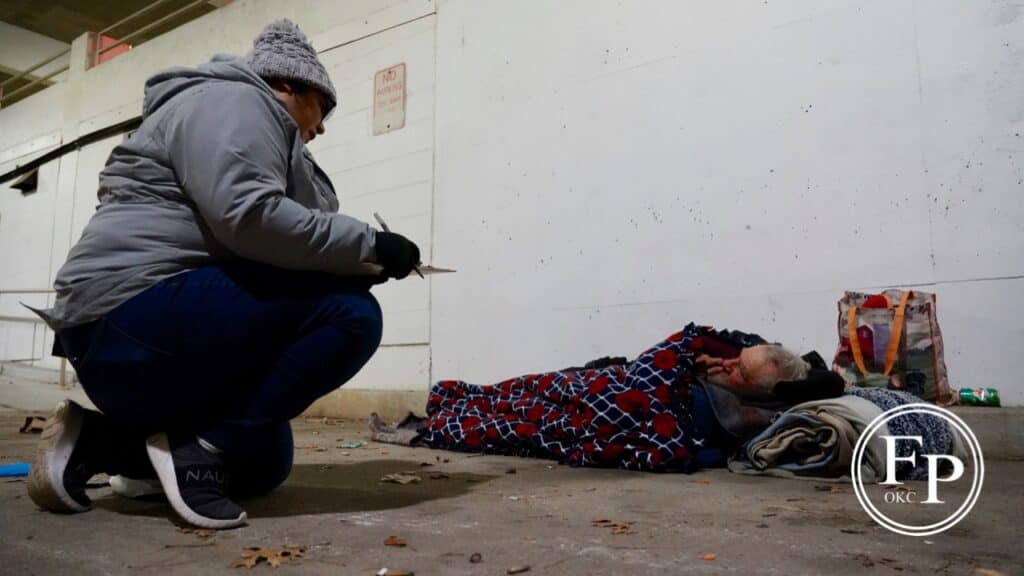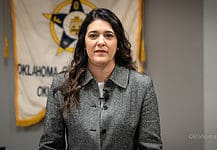Last Updated on August 2, 2022, 2:35 PM | Published: August 2, 2022
People who used to live in Picher, Oklahoma can easily identify a chat pile. They are massive hills of poison that tower over empty houses in this northeastern Oklahoma ghost town, the remains of a century’s worth of lead and zinc mining. They are composed of mine trailings, or chat. Lead poisoning affected 35 percent of the town’s children by the late 20th century, forcing a federal buyout of the property.
Last week, an Oklahoma City band called Chat Pile released “God’s Country,” a corrosively brilliant metal album that communicates what life is like for too many Oklahomans. Its cover features a photo of the Oklahoma County Detention Center as seen through the tangle of a nearby relay station. Out front, a lonely porta-potty holds court among the street detritus.
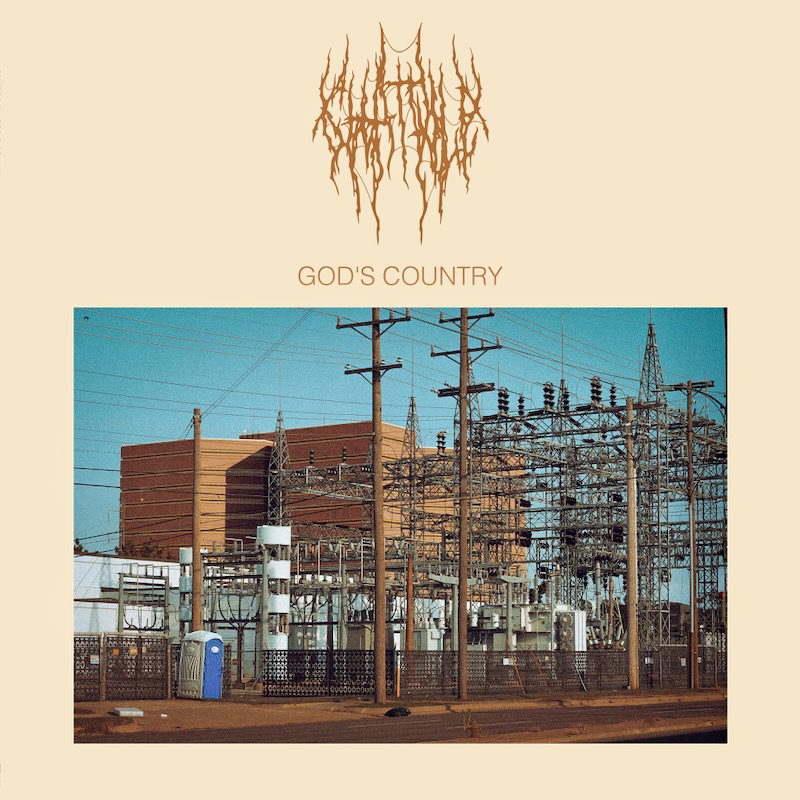
“God’s Country” received an 8.4 out of 10 from Pitchfork, Conde Nast’s prestigious and occasionally maddening online arbiter of all things music. In his Best New Music review, Philip Sherburne highlights the point of view, which is often and disturbingly from the villain’s perspective, and all the better for it.
“The question at the heart of ‘Why’ … is an unequivocal indictment of a system that relegates people to homelessness. The refrain of the dirge-like ‘Anywhere’ (“It’s the sound of a fuckin’ gun/It’s the sound of your world collapsing”) ought to be looped at punishing volume outside NRA headquarters,” Sherburne wrote.
During a summer in which unhoused Oklahomans are brutalized by 112 degree temperatures, “Why” is scathing in its furor over a problem that could be wiped out by one Okie oil oligarch with yacht money to burn.
Republished in partnership with Oklahoma Voice under Creative Commons license CC BY-NC-ND 4.0. Oklahoma Voice is a part of States Newsroom which is a nonprofit news network supported by grants and a coalition of donors as a 501c(3) public charity. Oklahoma Voice maintains editorial independence. Contact Editor Janelle Stecklein for questions: [email protected]. Follow Oklahoma Voice on Facebook and Twitter.

“Why do people have to live outside? I couldn’t survive out on the streets,” rants vocalist Raygun Busch. “I’ve never had to push all of my shit around in a shopping cart, have you? Have you ever had ringworm? Scabies? Have you ever had to live outside?
I don’t want to live outside. Why? Why? Why do people have to live outside?”
These are not the plaintive musings of an aggrieved liberal activist, but the ferocious howl of someone pissed at society’s unresponsive shrugs as they see the same people’s faces every day while they look for safety from the climate’s unforgiving, continuous beating.
Oklahoma weather can kill the unprotected and unhoused, as Busch shouts, “in the brutal heat or when it’s below freezing.”
And, this is not some imagined problem. It’s very real, as you can see from actual counts of the homeless.
According to the latest “Point in Time” count by the Oklahoma City Homeless Alliance and the City of Oklahoma City, 1,339 people were unhoused in Oklahoma City as of March 3, 2022. The number went down from 1,573 in 2020, but officials warned that the difference was likely the result of the day the PIT count was taken. In 2022, the count was delayed due to late-winter snow storms and then held when the weather was much warmer and fewer people were in shelters.
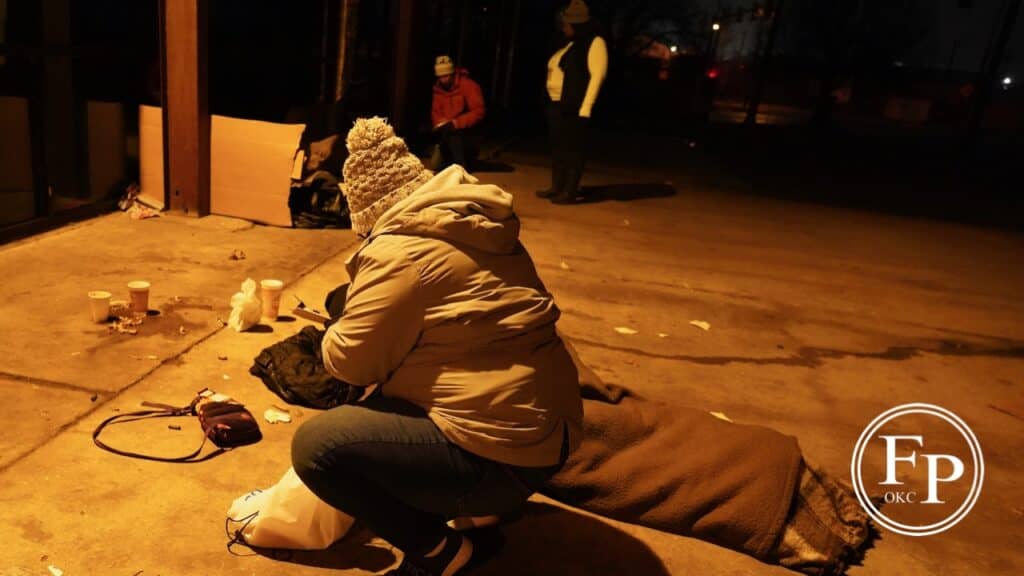
Name an Oklahoma failure, and it shows up, whether obliquely or straight against listeners’ heads, on “God’s Country.”
Chat Pile depicts horrific domestic violence in “Pamela” at a time when reports of domestic violence in Oklahoma are the highest in the nation and Gov. Kevin Stitt endorses a man for labor commissioner who allegedly abused his ex-wife and children.
“Tropical Beaches, Inc.” excoriates mindlessly greedy alpha males with the refrain, “Deeper cuts, bloody sheets, making money, making money.” Witness Stitt’s ending of supplemental federal employment benefits in 2021 in a COVID-19 era effort to push people back into office spaces, which served corporations at the expense of workers’ health.
Conservative ideologues have intentionally misinterpreted albums like “God’s Country” for the past half-century, painting these works as glorifying violence and misery for fun and profit because of a knee-jerk belief that heavy music, both in its sound and fury, is evil.
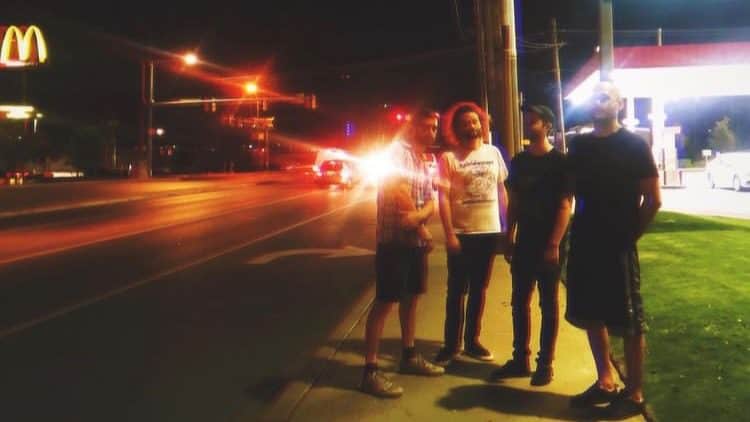
But Chat Pile, like so many other serious and topical bands, are simply relaying what they see in their own backyard.
As bassist Stin said in a recent interview with New Noise magazine, “More than anything, we’re trying to capture the anxiety and fear of seeing the world fall apart. Raygun is especially talented at that, even if the lyrics are fantasy-based at times. I think that that specific type of anxiety comes through no matter what.”
In their own medium, Chat Pile are reporters. Sunlight is the best disinfectant, and this band is training that sunlight on its home state to bring attention to its poisons by any sonic means necessary.
George Lang has worked as an award-winning professional journalist in Oklahoma City for over 25 years and is the professional opinion columnist for Free Press. His work has been published in a number of local publications covering a wide range of subjects including politics, media, entertainment and others. George lives in Oklahoma City with his wife and son.
